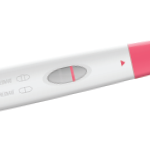
ajt/shutterstock.com
Ghalandari et al. analyzed cord blood levels of tumor necrosis factor inhibitors (TNFi’s) in post-partum women with rheumatic disease, seeking to validate the guidance outlined in EULAR’s document on points to consider for the use of anti-rheumatic drugs before and during pregnancy and lactation. Published in 2016, the document recommends the discontinuation of treatment with adalimumab and infliximab at week 20 of pregnancy and the discontinuation of etanercept at 30–32 weeks. Certolizumab pegol can be continued throughout pregnancy, up to 38 weeks.1,2
For the study, the researchers used patient data from an ongoing, prospective cohort study on inflammatory rheumatic diseases and pregnancy at the Erasmus Medical Center, Rotterdam, the Netherlands (Preconceptional Counselling in Active Rheumatoid Arthritis [PreCARA]; NCT01345071).3 Patients whose cord blood was collected at birth were included in their analysis.
The patients: Patients in the PreCARA cohort received a modified treat-to-target approach for rheumatoid arthritis (48%), spondyloarthropathies (23%), psoriatic arthritis (20%), juvenile idiopathic arthritis (5%) and other rheumatic diseases (4%).4 They had a mean age of 31.2±3.9 years, a disease duration of 8.0±6.5 years at study inclusion and disease activity scores (DAS28-CRP) of 2.2±0.8 in the third trimester. Additionally, 44% (n=49) of the patients had never before given birth to a live baby.
Patients became pregnant while taking a TNFi (e.g., adalimumab, etanercept or infliximab) and then discontinued it at the advised gestational age from the EULAR guidance. After discontinuing the TNFi, these women switched to certolizumab pegol and/or prednisone. Certolizumab pegol was discontinued at the gestational age of 38 weeks to prevent maternal infections during delivery. This recommendation in the EULAR document was based on expert opinion.
In each trimester, maternal blood was collected at times unrelated to TNFi administration and analyzed for the concentration of TNFi. Cord blood was collected at birth and also analyzed for the concentration of TNFi in it.
The Results
Ghalandari et al. analyzed the samples of 111 patients from the PreCARA cohort. Most patients stopped TNFi treatment prior to the EULAR-recommended gestational age. Adalimumab (n=25) was stopped before 20 weeks of pregnancy by 20 patients (80%), etanercept (n=30) was stopped before 30 weeks of pregnancy by 29 patients (97%), and infliximab (n=14) was stopped before 20 weeks of pregnancy by 10 patients (71%). The median gestational age when adalimumab was stopped was 19 weeks, the median gestational age when etanercept was stopped was 25 weeks, and the median gestational age when infliximab was stopped was 18.4 weeks. For certolizumab pegol (n=68), the median gestational age when treatment was stopped was 37 weeks (interquartile range [IQR]: 34.1–38.1 weeks), and the median time between the last dose of certolizumab pegol and delivery was 15 days (IQR: 2–34 days).
Low levels of TNFi’s were found in the cord blood samples. Adalimumab was detectable in 48% of cord blood samples, with a median concentration of 0.5 µg/mL and a median concentration ratio of 0.062. Etanercept was not detected in any cord blood samples. Infliximab was detectable in 57% of cord blood samples, with a median concentration of 0.4 µg/mL and a median concentration ratio of 0.012. Certolizumab pegol was detectable in 5.9% of cord blood samples, with a median concentration of 0.3 µg/mL and a median cord/maternal concentration ratio of 0.010.
Following the EULAR guidance led to no or low concentrations of these agents in cord blood. These findings indicate that newborns whose mothers continued to take a TNFi during pregnancy are most likely not immunologically compromised and are unlikely to have ill effects from these agents.
Study Strengths & Limitations
All patients in the analysis by Ghalandari et al. were treated at the same healthcare facility by the same healthcare practitioners. Therefore, the differences between healthcare practitioners were minimal. Patient data were retrieved directly from the study patients.
A limitation of the current study is that peak and trough values of maternal TNFi concentrations were not measured. Also, the concentration ratios calculated are less accurate than those that would have been calculated in a pharmacokinetic study. Another limitation: The majority of patients using etanercept switched or stopped the agent earlier than the EULAR recommended stop time of 32 weeks, which may have affected the results.
Detected TNFi concentrations in cord blood were much lower than maternal concentrations during active use. The potential harmful effects of low TNFi concentrations in cord blood are unknown and require further study. If the TNFi concentrations in cord blood are determined to be clinically important, then stopping infliximab and adalimumab at an earlier gestational age than what EULAR currently recommends may be appropriate.
Michele B. Kaufman, PharmD, BCGP, is a freelance medical writer based in New York City and a pharmacist at New York Presbyterian Lower Manhattan Hospital.
References
- Ghalandari N, Kemper E, Crijns I, et al. Analysing cord blood levels of TNF inhibitors to validate the EULAR points to consider for TNF inhibitor use during pregnancy. Ann Rheum Dis. 2021 Sep 7;annrheumdis-2021-221036. Online ahead of print.
- Skorpen CG, Hoeltzenbein M, Tincani A, et al. The EULAR points to consider for use of antirheumatic drugs before pregnancy, and during pregnancy and lactation. Ann Rheum Dis. 2016 May;75(5):795–810.
- Hazes JMW. Preconceptional counselling in active rheumatoid arthritis (PreCARA). ClinicalTrials.gov. 2016 Apr 28.
- Smeele HT, Rhöder E, Wintjes HM, et al. Modern treatment approach results in low disease activity in 90% of pregnant rheumatoid arthritis patients: The PreCARA study. Ann Rheum Dis. 2021 Jul;80(7):859–864.


